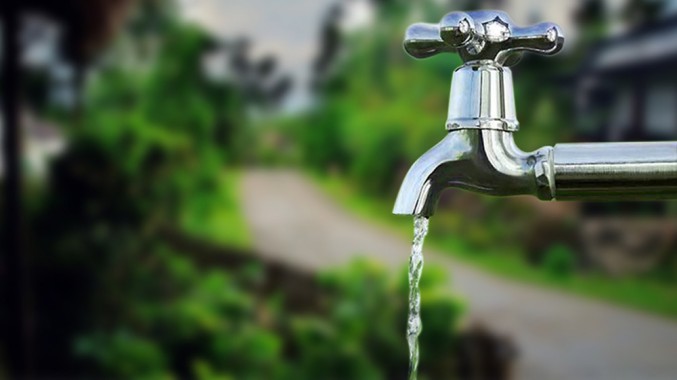
Saturday, Oct 24, 2020 10:45 [IST]
Last Update: Saturday, Oct 24, 2020 05:14 [IST]
SE Report
GANGTOK: The Union Jal Shakti ministry is in the process of assessing the progress made by all the States and Union Territories towards achievement of the goal of universal coverage under JalJeevan Mission (JJM), the flagship programme of Union government which aims to provide tap water connection to every rural household of the country by 2024.
In order to assess the progress of implementation, a mid-year review is underway through video conferencing. All States and UTs are presenting the status of the provision of tap water connection to rural households as well as the institutional mechanisms in place and the way forward to ensure universal coverage under JJM.
A PIB release on Thursday informs, Sikkim has presented their mid-term progress to the national JalJeevan Mission.
Sikkim has around 1.05 lakh households, of which 70,525 (67 per cent) households have tap water connections. The State has planned to provide 100 per cent tap connections in all households by the year 2021-22. The State also has a good water supply infrastructure and has water supply schemes in 411 villages. The State plans to saturate all the SC/ST dominated villages and villages in aspirational districts by year 2020-21, the PIB release mentions.
Out of the villages with PWS systems, only 81 have achieved the status ‘HarGharJal’ village. By providing 7,798 tap water connections, around 211 more villages will become 100 per cent tap connections enabled. The State needs to plan to complete this task at earliest, so that all PWS villages become 100 per cent saturated with tap water connections, the release mentions.
Issues like preparation of Village Action Plan, constitution of Village Water and Sanitation Committee (VWSC) were highlighted in the meeting. Emphasis was given on engaging voluntary organizations, NGOs, women SHGs as implementation support agencies to handhold the local community for planning, implementation and operation & maintenance of water supply systems.
The Sikkim government was asked to organize capacity building training of Gram Panchayat functionaries and other stakeholders and also to focus on skill development training in villages to create a pool of trained human resources at village level, which will be very helpful in implementation as well O&M of water supply systems. The State was advised to carry out the mandatory chemical testing and bacteriological testing of drinking water sources.
In 2020-21, Sikkim has been allocated Rs. 31.36 crore for implementation of JalJeevan Mission, out of which Rs. 7.84 crore has been released. To avail the second tranche of first release, the State has to expedite their fund utilization.
Sikkim has also been allocated Rs. 42 crore under 15thFinance Commission Grants to rural local bodies and 50 per cent of it is to be used for water supply and sanitation i.e. water supply, grey-water treatment and re-use and most importantly, for ensuring long-term operation and maintenance of water supply schemes.
Sikkim is known for its substantial water resources. But rapid population growth and urbanisation are affecting the water both in quantitative and qualitative ways. The State has a good water supply system in place; the need to capitalise on it so as to ensure every rural home of the State gets tap water connection, thereby improving the lives of people, the PIB release add.
